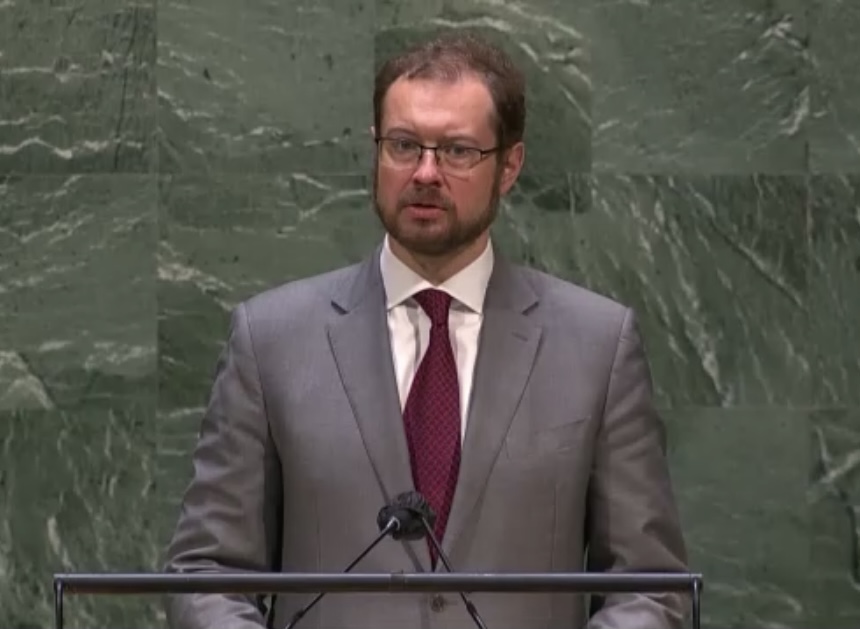Statement by Deputy Permanent Representative Dmitry Chumakov at the Joint Thematic Event of the UN General Assembly and ECOSOC on LDCs “Diversifying the Financing Toolbox to Enhance Investment in Least Developed Countries”
Distinguished President of the General Assembly,
Distinguished Vice-President of the ECOSOC,
Thank you for organizing the joint event on the crucial topic of the assistance to the LDCs.
The socio-economic impact of the COVID-19 pandemic and the necessity of joining our efforts to achieve the goals of the Sustainable Development Agenda require innovative approaches to the mobilization of the development financing. Many UN development system organizations and agencies have achieved in recent years the impressive results in coordinating their actions and improving effectiveness of their program activities. However, new realities require both a significant increase in funding and a diversification of its flows and models.
We note that the official development assistance remains the main source of financing for the least developed countries. In recent years, its volumes have not kept pace with their growing needs. Only one fifth of the overall ODA comes into the LDCs. Against the backdrop of the pandemic, remittances of migrants have decreased, and the changes in the private foreign direct investment volumes in recent years have a negative trend.
In our view, among the most effective solutions for mobilizing additional financing for the LDCs would be blended finance with attraction of the private sector capital. Currently, we are faced with the fact that business often prefers portfolio investments to production investments. Our overall objective is to convey to global business that, in the light of the new paradigm of sustainable development, financing in the real sector of economy and infrastructure of even the poorest countries does not mean losses, but, on the contrary, opens up new opportunities and perspectives.
The demand for larger public socio-economic support in the LDCs is certainly not diminishing. A promising additional incentive in this direction could be the widespread adoption of such financing models as “debt for development” and “aid for sustainable development”.
Decisive actions are required to tackle illicit financial flows and tax evasion, which will also help expand fiscal space in many countries, including the LDCs.
Mr. President of the General Assembly,
Mr. Vice-President of the ECOSOC,
We believe that the international assistance to the LDCs should be aimed at developing productive capacities, trade and infrastructure. This is how we can ensure their sustainable development, enhancing internal resources, expansion of fiscal space and accumulation of liquid funds.
Working closely with the least developed countries themselves is also the essential aspect of their success in achieving the SDGs by 2030. But our partnership must be geared towards the needs of the LDCs themselves, without imposing on them so-called right development approaches.
The Russian Federation supports the UN efforts to promote the development of the LDCs. Last year, our contributions to international organizations, excluding humanitarian aid, for the needs of these countries, amounted to more than $ 100 million. Three countries - Tanzania, Mozambique and Madagascar - have been provided with $ 18.5 million debt relief. A number of the LDCs received assistance to struggle the pandemic. The primary consignments of the COVID-19 vaccines have been shipped to Angola, Guinea and Djibouti. We intend to significantly expand deliveries of the vaccines.
We hope that today's discussions and suggested recipes will provide the basis for the financing for development arrangements of the Fifth UN Conference on the Least Developed Countries.
Thank you for attention.
